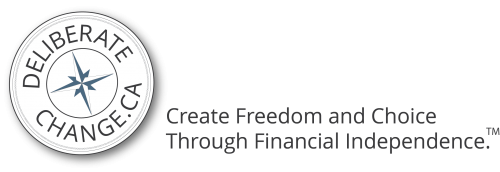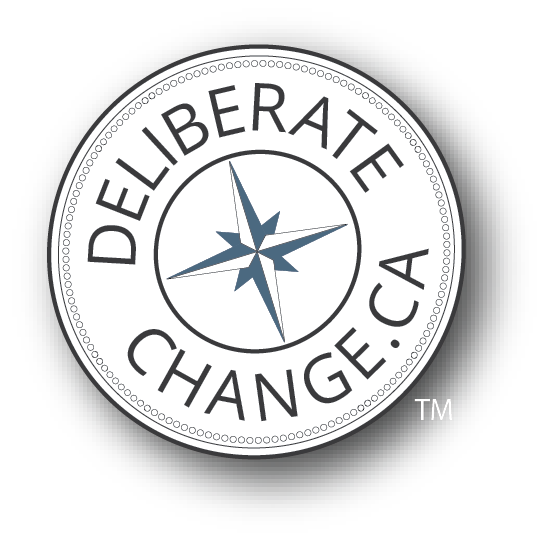
**********
Hot off the press! I’ll be speaking at the London ON FIRE meetup on Tue Oct 30, 6:30pm at 195 Dufferin Ave, London, ON. Come on out, say hi, and learn more about how you can retire sooner than you think!
Event info: https://www.facebook.com/groups/LDNonFIRE/events/
And now back to our regularly scheduled programming…
**********
How do you make decisions? Do you follow a defined process or go with your gut? Do you acknowledge the tug of war between head and heart in order to separate out the analytical and emotional aspects of the choice at hand?
I like to follow a method that spells out the pros, cons and costs of the decision, so that I can bounce that off the emotional side of things. That allows me to be conscious and deliberately aware of the situation.
But maybe you’re not into that kind of thing, and maybe pros & cons lists drive you crazy. So today I would like to propose a simple question that can help with your decision-making: What would Future You think?
In a nutshell, if you ask this question with every decision of meaning (and even other seemingly less important decisions), it will force you to bias towards the longer-term benefits instead of instant gratification.
I Love Candy
Let’s assume that Future You is only a few hours away. And Present You is faced with a decision about how much candy to consume right now. Present You most certainly wants to eat everything, but Future You is aware of the stomach ache that will ensue… Who do you listen to? Or do you negotiate between Present and Future Yous?
Although this example may be a little absurd, I am known to have a bit of a sweet tooth, and with Halloween just around the corner, the battle is looming…
But let’s take it a little further. What if Future You is several years out? Maybe 5 or 10 years out. Now you’re looking at the long-term benefits vs. consequences of eating all of that candy. Maybe it’s a one-time binge-fest, or maybe it’s an ongoing saga. But clearly Future You would be upset if you ate candy every day and suffered the associated health benefits.

Hyperbolic Discounting
Let’s look at the money side a bit now, too. If you had the choice between $50 today or $100 in a year, which would you take? What if the choice was $50 in 5 years or $100 in six years?
The results might surprise you.
Many people would apparently choose the $50 today in the first scenario, but the $100 in six years in the second scenario, even though both options are identical when viewed from Future You’s perspective in 5 years. Why would Present You make a different decision now than would be expected in 5 years? There is apparently a lot of debate about this topic, which is called “hyperbolic discounting”. You can read more about it here: https://en.wikipedia.org/wiki/Hyperbolic_discounting
The point is that psychology is a strange thing. But you can twist it around to your benefit if you understand the core things that motivate you personally, and the things that will make your overall life more satisfying. Like having a conversation with Future You on Present You’s decision.
Oh, and hyperbolic discounting applies to non-human subjects like rats and pigeons, too! Who would’ve thought…!
The Time Will Pass Anyway

One last point I would like to share on this topic: What if you’re trying to make some significant change to your lifestyle patterns or habits? Like, I dunno, aiming for FIRE (Financial Independence / Early Retirement)? Or starting a new career? Or saving for a major vacation like a year-long world trip?
Considering society’s general lack of success in implementing these Big Dreams, I would hazard a guess that Present You looks at the challenge and gives up. But I read a great article from Millennial Revolution that really helped: https://www.millennial-revolution.com/build/stay-motivated-on-your-way-to-financial-independence/
The key take-away? “The time will pass anyway.” So if you look at something and think it’s too hard or will take too long, you can take a pass. But then the time will pass anyway, and Future You will look back and likely be disappointed with Present You (or Past You from Future You’s point of view).
But if you keep on plugging away at your goal, the time will pass anyway, and Future You will look back with appreciation.
So the next time you’re making a big or small decision, ask yourself what Future You would think, and then follow his or her advice.
 Your Turn Now!
Your Turn Now!
What type of decision-making process do you typically follow? Are you a by-the-book numbers person, or primarily emotional? Any suggestions on tricking (sorry, motivating) yourself into making better decisions?

 Your Turn Now!
Your Turn Now!







Your Turn Now! What's On Your Mind?